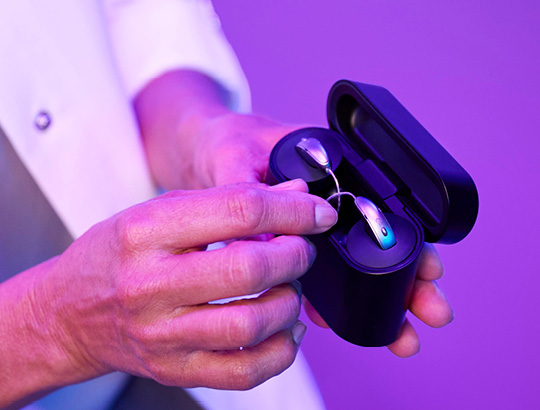

In today’s digital age, security is paramount. Whether you’re a government agency, a corporate entity, or an individual concerned about privacy, safeguarding sensitive information is crucial. This is where SCIF compliance comes into play. This is true even for devices to be considered SCIF compliant hearing aids. But what exactly does it mean for a device to be SCIF compliant? Let’s break it down in simple terms.
SCIF stands for Sensitive Compartmented Information Facility. It serves as a highly secure area for handling classified information. SCIFs are designed to prevent unauthorized access to sensitive data, whether it’s in physical or electronic form. These facilities adhere to strict security protocols and standards to ensure the confidentiality, integrity, and availability of classified information.
When we talk about SCIF compliance in relation to devices, we’re referring to the standards and specifications that ensure a device meets the security requirements necessary for use within a SCIF environment. This includes everything from computers and smartphones to printers and network equipment.
Ensuring that devices are SCIF compliant is essential for maintaining the security and integrity of classified information. Non-compliant devices could pose significant risks, including data breaches, espionage, and compromise of national security. By adhering to SCIF standards, organizations can mitigate these risks and protect sensitive data from unauthorized disclosure.
SCIF-compliant hearing aids are designed to meet the security standards set by the Director of National Intelligence. These devices are suitable for Sensitive Compartmented Information Facilities (SCIFs) and are often required by government agencies or roles involving high-security clearance.
Across all brands, SCIF-compliant hearing aids disable the following audio-transmitting features:
Retained Features
Despite these restrictions, users can typically continue to access:
The following hearing aids are available in SCIF-compliant configurations:
SCIF-compliant hearing aids turn off a subset of wireless capabilities that use audio inputs such as: Two-Way Audio phone calls, Smart Assistant, Translate, and Transcribe. SCIF-compliant hearing aids can continue using streaming and the apps outside of these features.
In summary, SCIF compliance for devices involves meeting stringent security requirements to ensure the protection of classified information. By implementing physical, technical, and procedural safeguards, organizations can enhance the security posture of their facilities and mitigate the risks associated with unauthorized access and data breaches. In an increasingly interconnected world, maintaining SCIF compliance is more important than ever to safeguard sensitive information and uphold national security. Users can enjoy both enhanced security and accessibility, making it a valuable choice for those operating in classified environments.
ReSound Savi RIE hearing aids offer cutting-edge AI-powered technology to enhance speech clarity and reduce background noise. Designed for all-day comfort, these rechargeable hearing aids provide seamless connectivity and superior sound processing. Key features include:
Signia Pure Charge&Go BCT IX hearing aids provide seamless Bluetooth Classic connectivity, superior sound processing, and all-day battery life. Designed for comfort and performance, these small, rechargeable RIC hearing aids offer hands-free calls, music streaming, and advanced speech clarity. Key features include:
ReSound Vivia RIE hearing aids offer cutting-edge AI-powered technology to enhance speech clarity and reduce background noise. Designed for all-day comfort, these rechargeable hearing aids provide seamless connectivity and superior sound processing. Key features include:
Signia Active Pro IX hearing aids combine advanced technology with a modern earbud design for clear, comfortable listening. Ideal for users seeking strong performance in social settings, they offer superior connectivity, speech enhancement, and long battery life. Key features include:
Starkey Edge AI RIC is a cutting-edge receiver-in-canal (RIC) hearing aid designed for individuals with mild to severe hearing loss. Available in multiple technology levels:
Powered By SinglerDesign.com